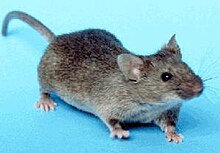A new study in mice published by Nature Magazine suggests that a specific microbial balance results in a reduction of brain damage after a stroke. The severity of a stroke is determined by two types of intestinal cells: Regulatory T Cells and Gamma Delta T Cells. Regulatory T cells have a helpful inflammatory effect. However, Gamma Delta T Cells make a cytokine which results in harmful post-stroke inflammation.
Researchers at Weill Cornell Medical College and Memorial Sloan Kettering Cancer Center studied two different groups of mice in order to learn if gut cells could be altered in order to reduce stroke severity. One group of mice had gut bacteria that was unaffected by antibiotics, while the other group of mice’s gut bacteria was extremely vulnerable to antibiotics. The group of mice that was vulnerable to antibiotics had a higher ratio of good Regulatory T Cells to harmful Delta T Cells.
The researchers then induced strokes in all of the mice, and the brain damage was 60% less devastating in the mice vulnerable to antibiotics than the other group. In order to ensure that the difference in stroke severity was solely as a result of the gut bacteria, the researchers took the feces of the mice with reduced stroke severity, and transplanted it into new mice. Those new mice also exhibited a resistance to brain damage, confirming the belief that the gut bacteria was responsible for the change.
These new findings in the research of mice may be able to benefit humans in the future. Antibiotics or a specific diet may be able to reduce the effect of stroke on the brain. However, the gut microbiome of a mouse is vastly different than the gut microbiome of a human, so it may be a while before new treatments are discovered.



Leave a Reply